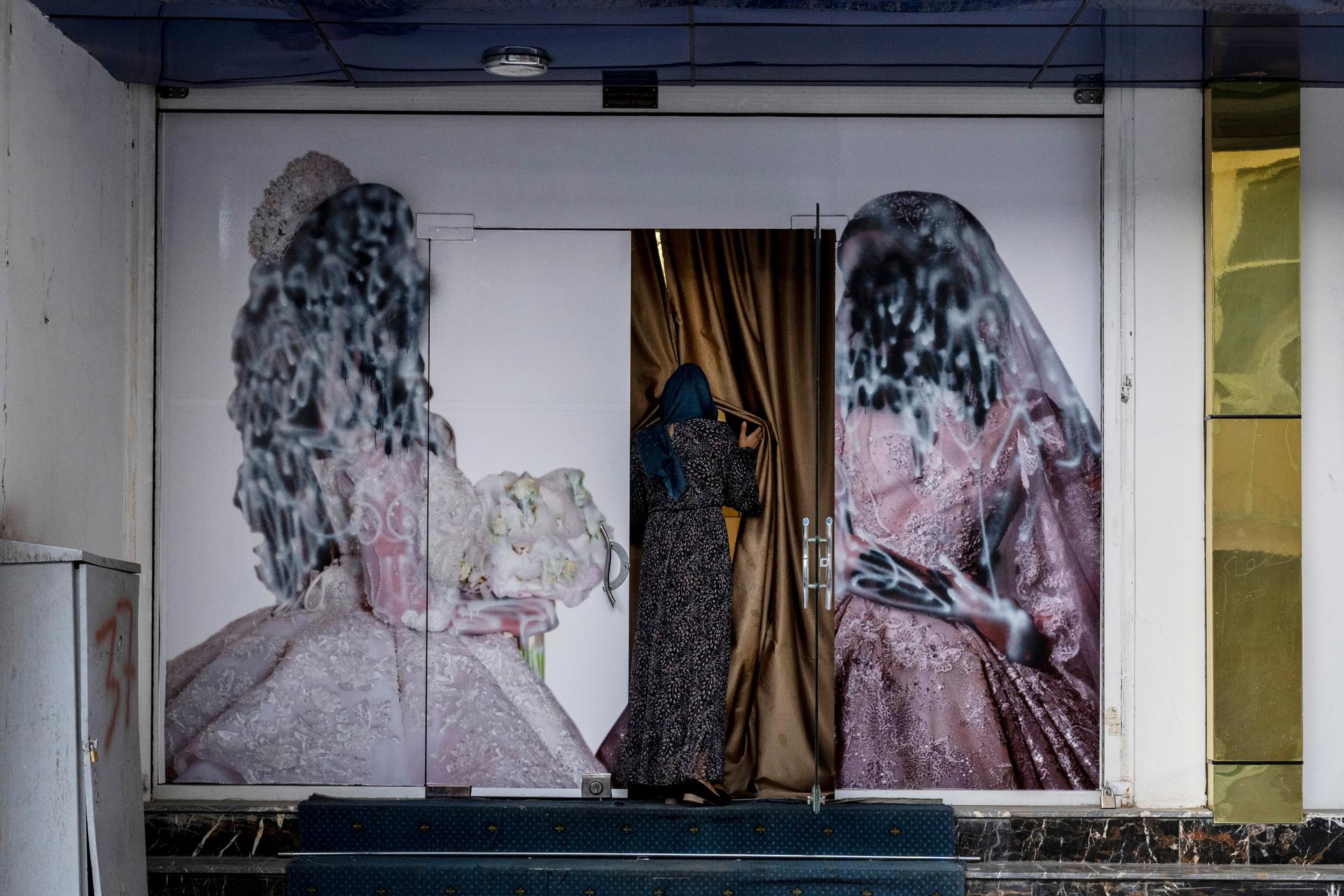Tears rolled down Maliheh’s face this week as she took down the sign of her beauty salon in Farah province in southwestern Afghanistan.
The business she had owned and operated for the past 22 years can no longer operate because the Taliban have ordered all female beauty salons in the country to close down.
“We have no hope in this country,” she said. “Women have no place here.”
When the Taliban took over Afghanistan by force almost two years ago, one of the images that circulated online was that of women’s faces being blacked out on billboards and public signs.
“These photographs were used for advertising on the outside of beauty salons in Afghanistan, and suddenly, they’d been painted over. It was a very powerful visual symbol of how things had changed,” said Heather Barr, associate director of the women’s rights division at Human Rights Watch.
Barr added that suppression of women has been central to the Taliban’s mission in Afghanistan. For two decades, the group indoctrinated its fighters by telling them that women’s rights is a Western concept and a plot to undermine Islam.
“And so, the suppression of women, I think, became part of what their fighters felt that they were fighting for.”
The result of that indoctrination is evident in Afghanistan today. Over the past two years, the Taliban have systematically taken away women’s freedoms. They are not allowed to pursue higher education, work for international, nongovernmental organizations and most government jobs, and they can’t go to parks or gyms.
The recent ban on beauty salons is particularly concerning, Barr said, because it is the first time that the group is targeting women’s ability to work in the private sector.
Until now, the private sector was the only area left for women to earn a living.
The salon ban means that thousands of women head of households will lose their incomes.
Maliheh, who only gave her first name because she fears backlash from the Taliban, is one of them. She is the sole breadwinner of her family. Her husband had a stroke recently and is unable to work. They have four kids.
“Our family of six is now relying on God for sustenance,” she said.
Further north, in the province of Herat, another salon owner, 32 year-old Niloufar, said the news has left her speechless.
She and her two sisters opened up their business in Herat City 10 years ago. She, too, didn’t want me to use her full name, because she worried about Taliban harassment.
Her salon offers a range of services, she explained: haircuts, nails, eyebrow tattoos, and bridal makeup.
The three sisters employ eight women. Now, they’ve been forced to shut down.
“After the Taliban banned women from getting an education, we focused our attention on this salon,” Niloufar said. “It was our only hope.”
Roughly 60,000 women will lose their jobs as a result of this ban, a source from Afghanistan’s Ministry of Commerce told the BBC.
That’s at a time when there has already been a 25% drop in women’s employment since the Taliban took over the country, according to the International Labor Organization.
“The ban on beauty salons will undoubtedly increase poverty among women,” said women’s rights activist Razia Barakzai.
Barakzai herself was among the first women to take to the streets to protest the Taliban takeover of Afghanistan in August 2021.
She recounted being arrested, taken away and beaten.
“Even under the barrel of the Taliban’s guns and after being lashed, we shouted, ‘The Taliban don’t have any legitimacy,’” she said.
Barakzai had to flee Afghanistan and lives in Pakistan with her family.
But even there, she said, she doesn’t feel safe. She rarely leaves the house.
Yet, Barakzai continues to speak out against the Taliban’s assault on women’s rights.
She has been in touch with salon owners in Afghanistan who have told her that the group is going after their male relatives, too, warning them that if they don’t pressure their female relatives to shut down their salons, they will face severe consequences.
Heather Barr of Human Rights Watch said the new ban will have long-term consequences for women in Afghanistan. Because, she added, beauty salons there are much more than a place to get a haircut or a manicure.
“These salons are one of the very, very few spaces, maybe one of the only spaces that’s left in Afghanistan where a woman might be able to go out from her home and see other women and share information and share support,” Barr said.
Now, even that has been taken away.
